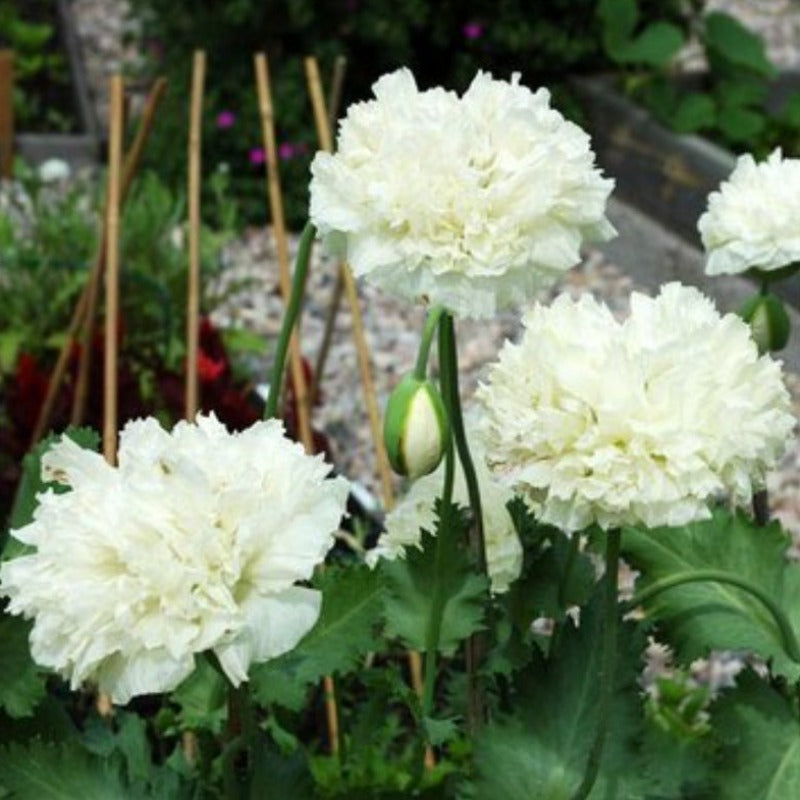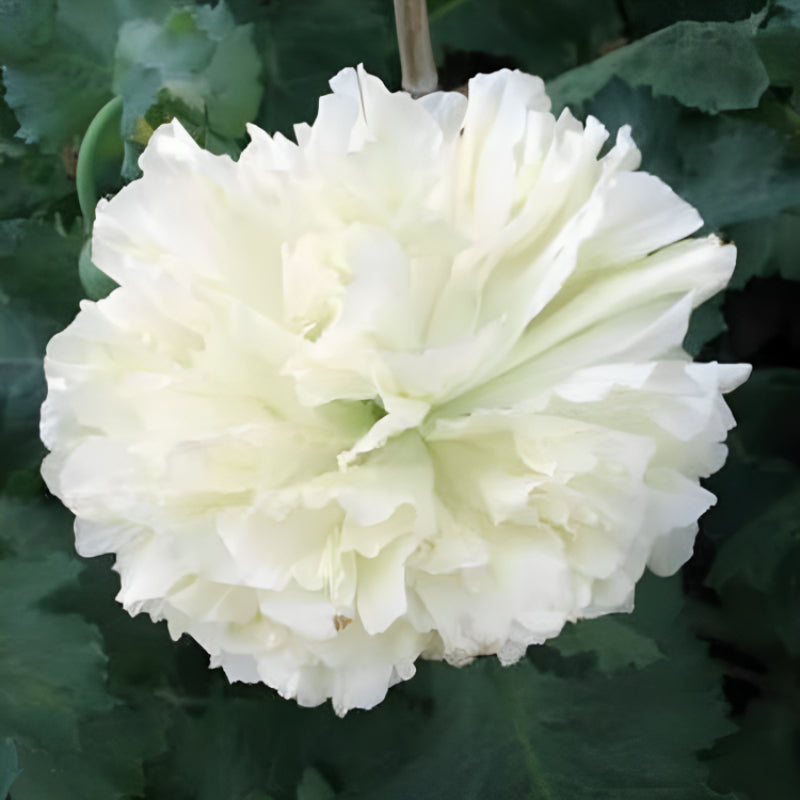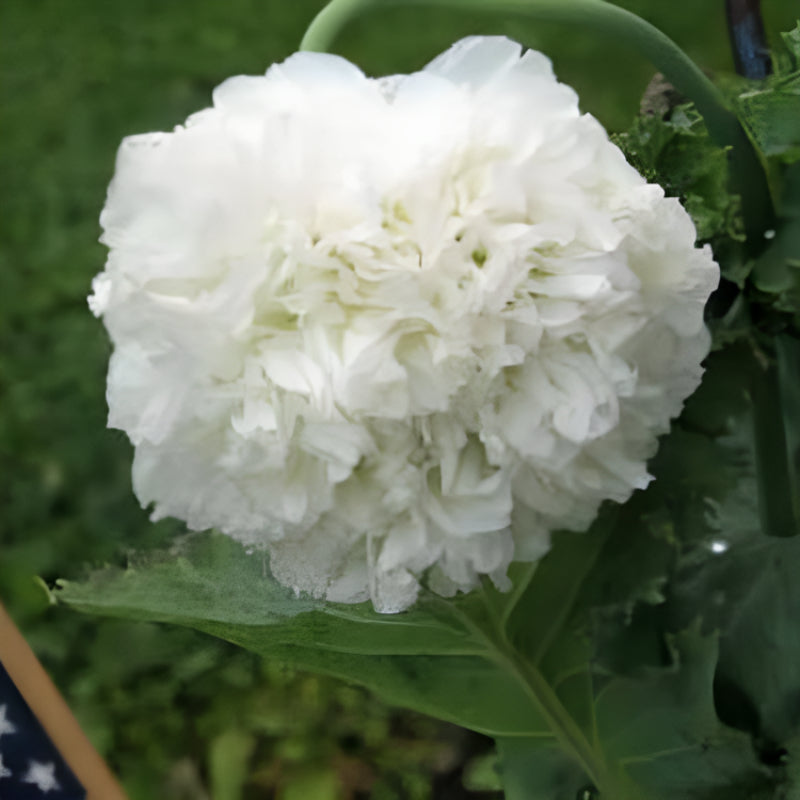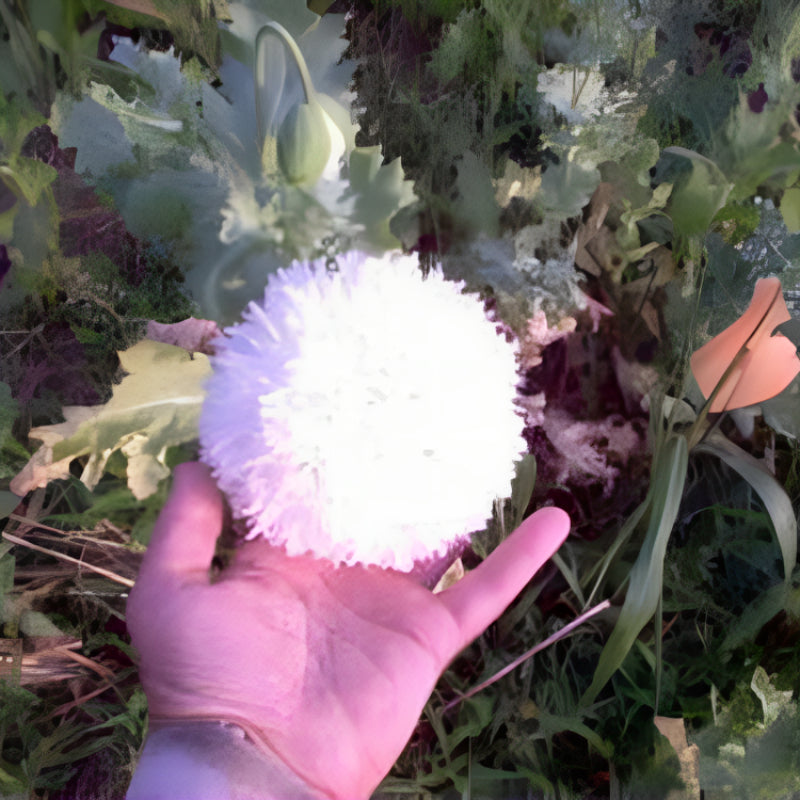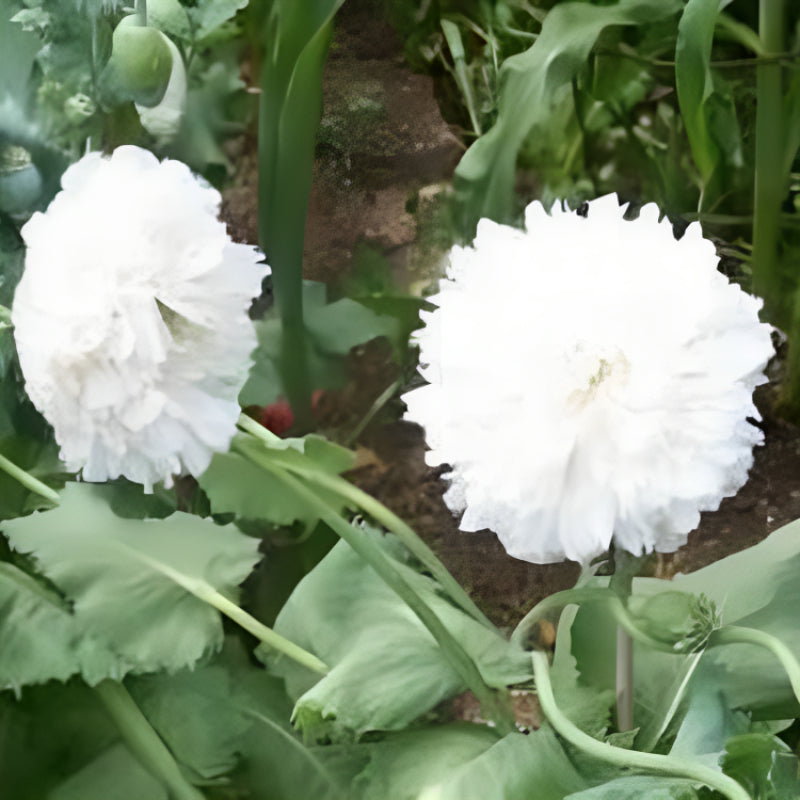- Historical context: The Cloud Peony Poppy is a variety of the Papaver somniferum species, which has been cultivated for centuries for its ornamental, culinary, and medicinal uses.
- Geographical origination: The Papaver somniferum species is native to the eastern Mediterranean region but has been cultivated in many parts of the world.
- Relevant cultural significance: Poppies have been used symbolically in various cultures, often representing sleep, peace, and death due to their sedative properties and the blood-red color of some varieties.
- Time period of discovery: The cultivation of poppies dates back to at least 5000 BC, as evidenced by archaeological findings in the Swiss lake dwellings.
- Original habitat: The original habitat of the Papaver somniferum species is believed to be the eastern Mediterranean region, in well-drained soils in full sun.
- Notable historical uses: Historically, poppies have been used for their ornamental value, for the production of poppy seed oil, and for their medicinal properties, particularly as a sedative and analgesic.
- Ideal temperature range: Poppies prefer cool to moderate temperatures and may not thrive in extreme heat.
- Soil type: Poppies prefer well-drained soil and can tolerate a wide range of soil types, including sandy, loamy, and clay soils.
- Sunlight requirements: Poppies require full sun to grow well.
- Watering needs: Poppies have moderate watering needs and are somewhat drought-tolerant once established.
- Planting season: Poppies are typically planted in the fall or early spring.
- Germination time: Poppy seeds usually germinate in 10-20 days.
- Growth cycle duration: Poppies have a growth cycle of about 120 days from planting to seed maturity.
- Common pests and diseases: Poppies can be affected by aphids, powdery mildew, and gray mold.
- Companion planting advice: Poppies can be planted with other early spring flowers, such as tulips and daffodils.
- Common challenges and solutions: Poppies can be difficult to transplant due to their taproot system, so it's best to plant them where they will be left undisturbed.
- Nutritional values: Poppy seeds are a good source of dietary fiber, healthy fats, and several essential minerals, including calcium, iron, and zinc.
- Health benefits: Poppy seeds may have health benefits due to their content of antioxidants and beneficial plant compounds.
- Culinary uses: Poppy seeds are used in a variety of culinary applications, including baking, salad dressings, and as a topping for breads and rolls.
- Medicinal uses: Historically, poppies have been used for their sedative and analgesic properties. However, the use of poppies for medicinal purposes should be done under the supervision of a healthcare professional due to the potential for addiction and other side effects.
- Other unique advantages: The Cloud Peony Poppy is particularly valued for its ornamental value, with its large, double flowers and attractive foliage.
